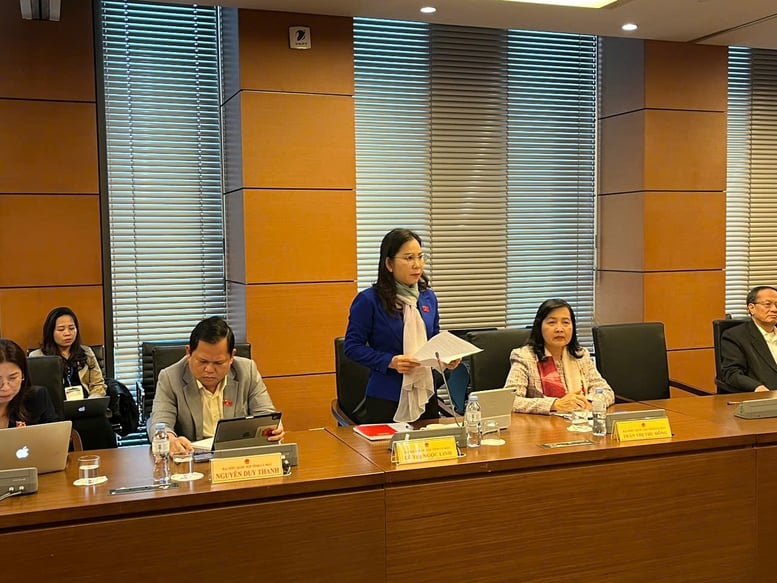
Delegate Le Thi Ngoc Linh ( Ca Mau Delegation) - Photo: VGP/Nguyen Hoang
At the National Assembly 's group discussion session on the afternoon of November 3 on the draft Law on Prices (amended), delegates said that assigning price stabilization authority to the People's Committees at the commune level is consistent with the two-level local government model.
Carefully review regulations and implementation
Speaking at the group, delegate Le Thi Ngoc Linh (Ca Mau delegation) agreed with the necessity of amending the Law on Statistics to ensure suitability with reality and meet management requirements in the new period.
Delegates suggested that the drafting agency should clearly stipulate the types of mandatory statistical reports, frequency, form and responsible focal point for implementation, ensuring synchronous implementation and avoiding overlap. At the same time, it is necessary to add transitional provisions so that the implementation process is not interrupted when the law comes into effect.
Regarding the authority to promulgate statistical reporting regimes, delegates suggested carefully reviewing the regulations of the Ministry of Finance with the actual implementation in localities, avoiding conflicts and ensuring consistency with the two-level local government model.
Notably, the delegate also proposed to add regulations on the right of individuals to statistical investigation, in order to be consistent with the provisions of the Law on Personal Data Protection 2025 and the Law on Network Information Security 2015. This, according to the delegate, will strengthen the protection of personal information and consolidate people's consensus in statistical activities, contributing to improving the quality, reliability and transparency of national statistics.
Discussing the Draft Law on Prices (amended), delegate Le Thi Ngoc Linh said that assigning price stabilization authority to the People's Committee at the commune level is consistent with the two-level local government model.
However, delegates noted the need to carefully assess feasibility, especially in terms of human resources and implementation conditions at the commune level, to ensure effective implementation, close to reality and avoid formality.
Delegates proposed flexible decentralization: the Provincial People's Committee regulates the price framework, while the Commune People's Committee regulates specific prices, suitable to the characteristics of each locality, contributing to regulating the market and protecting people's rights.
Stabilize by market economic institutions, not by administrative orders.
Commenting on the Law on Prices (amended), delegate Nguyen Nhu So (Bac Ninh Delegation) emphasized that in the context of the world economy continuing to fluctuate strongly, inflationary pressure and the risk of supply chain disruption still exist, the requirement to perfect the price management institution becomes more urgent.
This revised Law on Prices not only aims to overcome the shortcomings of the current legal framework; institutionalize the Party and State's guiding viewpoints on organizing two-level local governments associated with promoting decentralization and delegation of power, but also create a foundation for the State to manage prices flexibly, transparently and in accordance with market rules.
Among the key issues, according to delegate Nguyen Nhu So, the price stabilization mechanism is the link that needs to be considered most fundamentally. Because this is a tool that directly affects macroeconomic stability, people's lives and the confidence of the business community.
Recent practice shows that if the price stabilization mechanism is not scientifically designed, based on supply capacity and market signals, the policy can easily become a formality, even counterproductive.
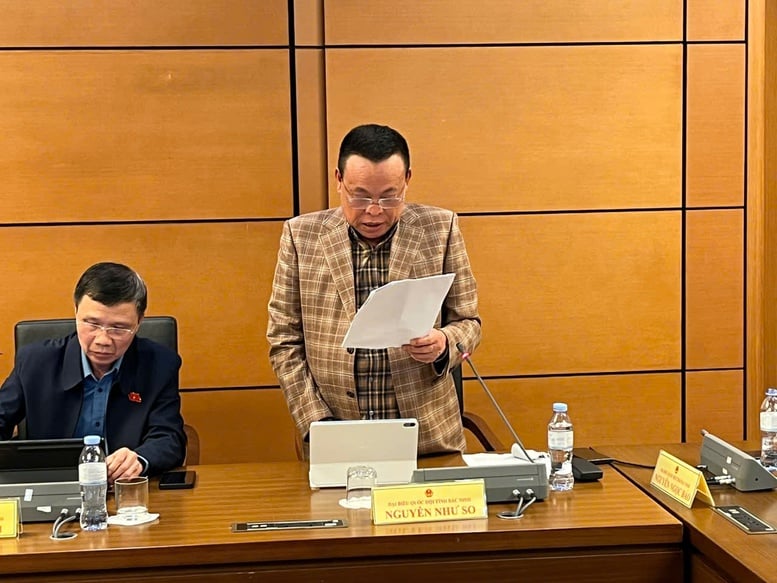
Delegate Nguyen Nhu So (Bac Ninh Delegation) gives comments on the Law on Prices (amended) - Photo: VGP/Nguyen Hoang
To contribute to perfecting the draft law, delegate Nguyen Nhu So clarified three key groups of issues still stuck in the price stabilization mechanism.
Firstly, it is necessary to continue reviewing and perfecting the list of goods and services for price stabilization to help manage and control inflation, stabilize the macro-economy in the face of the impacts of the global economy as well as climate change. This list must be built on a scientific basis, accurately reflecting the essential nature, the level of risk of price fluctuations, as well as the ability and cost of State intervention. Price stabilization must be implemented on the right subjects, at the right time, with the right tools to be effective.
Delegates also said that maintaining animal feed and aquatic feed in the list of price-stabilized goods is no longer appropriate and needs to be carefully researched and reviewed to ensure compatibility with the operating rules of the market economy and current production and business practices.
Firstly, the prices of animal feed and aquatic feed have been relatively stable in recent times, no longer fluctuating abnormally as in the previous period. The market has formed a fairly transparent competitive mechanism, with the participation of many domestic and foreign enterprises. When prices have self-regulated by the law of supply and demand, the application of administrative measures to stabilize them will become unnecessary.
Second, the current price of animal feed depends mainly on external factors. More than 80% of raw materials for production must be imported from abroad, in which the prices of corn, soybeans, and wheat are directly affected by world prices along with transportation costs and exchange rate fluctuations. Therefore, the State cannot "stabilize" factors beyond its control. If the price stabilization mechanism is still applied in the context of sharply increasing inputs, production enterprises will face great risks, their profit margins will be squeezed, and they will even suffer heavy losses, leading to a reduction in production, causing a shortage of domestic supply. In the end, livestock farmers will still be the ones to suffer.
Third, administrative intervention in the prices of a highly market-oriented industry such as animal feed can easily lead to market distortions, reduce competition, and hinder technological innovation and investment in production expansion. Instead of helping farmers, this policy can cause the market to stagnate, destroying the motivation for sustainable development of the livestock industry.
Therefore, according to the delegates, it is necessary to remove animal feed and aquatic feed from the list of price-stabilized goods, and switch to regulating them using market economic tools. Specifically, the State needs to focus on supporting the development of domestic raw material areas, reducing dependence on imports; have policies to support strategic raw material reserves for businesses; increase transparency of market information, helping farmers and businesses proactively plan production and consumption.
"We need to stabilize the market economy through market institutions, not through administrative orders. When the market operates smoothly, with fair and transparent competition, that is the solid foundation to ensure long-term benefits for both businesses and breeders," the delegate from Bac Ninh province emphasized. This is not only a technical issue in price management, but also a necessary step in the process of perfecting the socialist-oriented market economy institutions, ensuring that the State creates, the market operates smoothly and people and businesses benefit together.
The second group of issues is about price stabilization measures, delegate So analyzed: Article 19 of the current law has quite complete and practical regulations. However, practice shows that the effectiveness of price stabilization work does not only depend on management tools, but the core lies in the capacity to ensure the supply of goods. For goods with scarce supply (such as gasoline), no matter what stabilization measures are applied, the results will only be temporary, and it is difficult to maintain long-term stability.
Therefore, price stabilization needs to be viewed in the overall macroeconomic development policy, linked to the strategy of ensuring supply security and improving domestic production capacity. The State must give top priority to fundamental support policies on tax, credit, land, energy and logistics infrastructure to encourage businesses to invest in expanding production, increasing storage capacity, proactively sourcing essential goods and reducing dependence on imports.
Only when we can proactively control supply can we stabilize prices in a real and sustainable way, thereby contributing to maintaining macroeconomic stability, controlling inflation and strengthening the trust of the people and business community in the Government's management capacity.
The third group of issues is about the organization of price stabilization implementation, delegate Nguyen Nhu So analyzed: At point b, clause 2, Article 20 of the current law, the provincial people's committee is authorized to consider, decide, and apply measures and time limits for price stabilization at the local level. However, the broad delegation of authority without a corresponding control mechanism will potentially pose many risks in implementation. When there is a lack of a cross-checking and monitoring mechanism between localities, the risk of price differences, market fragmentation, and even unfair competition between regions is entirely possible. This not only affects the transparency of the market, but also reduces the effectiveness of the price stabilization policy at the national level.
Therefore, delegate Nguyen Nhu So proposed that the drafting agency study and establish a centralized monitoring mechanism of the Ministry of Finance, ensuring consistency in price management, harmonizing decentralization and power control, thereby limiting the situation of "each place has its own price" and strengthening confidence in market stability nationwide.
Hai Lien
Source: https://baochinhphu.vn/nen-tang-de-nha-nuoc-dieu-hanh-gia-ca-linh-hoat-minh-bach-102251103181055598.htm


![[Photo] Closing of the 14th Conference of the 13th Party Central Committee](https://vphoto.vietnam.vn/thumb/1200x675/vietnam/resource/IMAGE/2025/11/06/1762404919012_a1-bnd-5975-5183-jpg.webp)
![[Photo] Prime Minister Pham Minh Chinh receives the delegation of the Semiconductor Manufacturing International (SEMI)](https://vphoto.vietnam.vn/thumb/1200x675/vietnam/resource/IMAGE/2025/11/06/1762434628831_dsc-0219-jpg.webp)




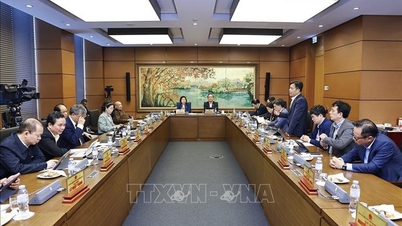















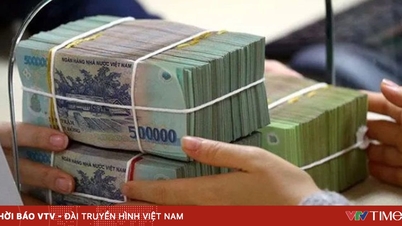






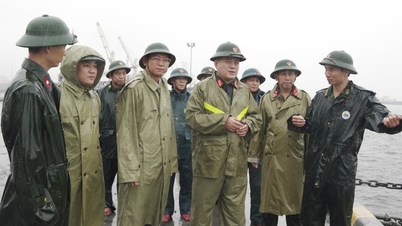


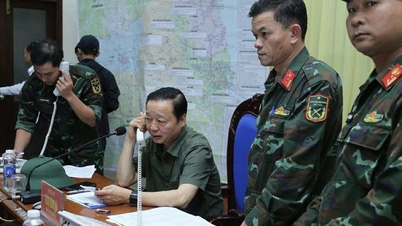






































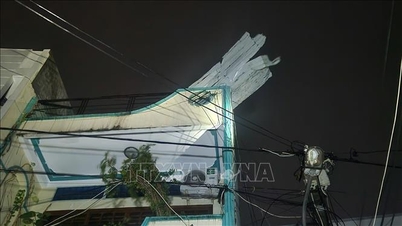



















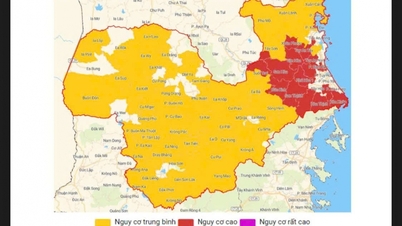





















Comment (0)